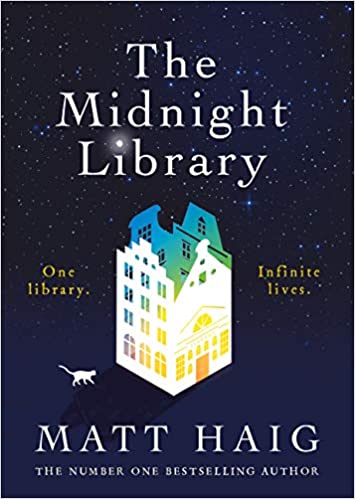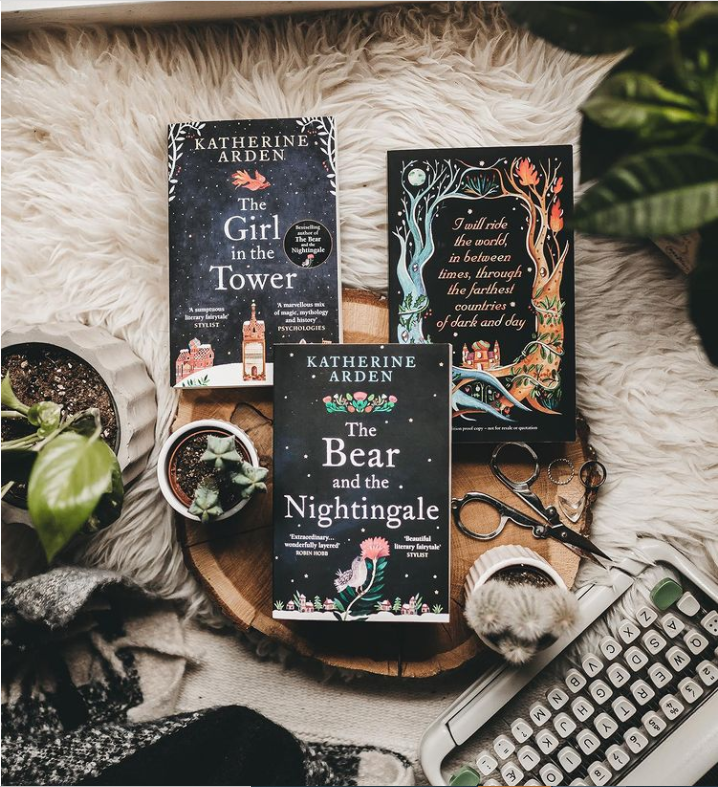 Picture yourself in this scenario: you hear about a book (maybe you see it on prominent display at a bookstore, or it’s topping the bestseller lists, or Reese Witherspoon picks it for her book club). You think, “that sounds like something I’d enjoy”. You join the waitlist at the library and you’re 95 people deep. Then, months later, you finally get to read the book and you think to yourself, “…that’s it?” (Infomercial voice) Has this ever happened to you? If so, you may have found yourself the victim of hype. Don’t worry, it’s a place we all find ourselves now and again—and some of us (cough me) find ourselves there repeatedly, all year long!
Picture yourself in this scenario: you hear about a book (maybe you see it on prominent display at a bookstore, or it’s topping the bestseller lists, or Reese Witherspoon picks it for her book club). You think, “that sounds like something I’d enjoy”. You join the waitlist at the library and you’re 95 people deep. Then, months later, you finally get to read the book and you think to yourself, “…that’s it?” (Infomercial voice) Has this ever happened to you? If so, you may have found yourself the victim of hype. Don’t worry, it’s a place we all find ourselves now and again—and some of us (cough me) find ourselves there repeatedly, all year long!
This post was, of course, inspired by my current read, which is The Midnight Library by Matt Haig—a book that has such a long waitlist at VPL that I’m only reading it now because I got a copy of it for Christmas. At the time of writing this, the book was sold out online at Indigo, no doubt helped by Dolly Parton mentioning that she’s reading it in a New York Times interview from December. The book also has a 4.22 rating on Goodreads, which, on scale of one to five stars, is quite good. I’m headed towards the end of the book, and I have to say: it’s…fine. Like, it’s not bad by any means. But nor is it particularly good? It’s just…fine.
Falling prey to the hype machine is something most avid readers will experience periodically; there’s really no way around it. Hype is a double-edged sword: an excellent word-of-mouth promo tool, but also a bullseye for backlash. When I say “hype”, I don’t mean your friend who fell in love with a book and insists that you read it; I mean the cultural circus that surrounds a book sometimes well before it’s even released to the general public. It’s something that’s built up from the bottom; sometimes a book is a sleeper hit that no one predicted, but most of the time, a book is highly visible on purpose. If a publishing house thinks they have a title that the public will eat up, they really throw their back into that promo. So by the time it reaches our eyes and ears, the hype will have snowballed into something unignorable, forcing that book into your line of vision—you might not even know what the book is about, but you’ve heard it’s supposed to be good! Again, I’m not claiming this as a strictly good or bad thing. One could argue that, with the unprecedented volume of books available, hype can be a lightning rod for readers looking for a little guidance. It shortens the search process. “Here’s a book we think you’ll like”, it says—and truly, don’t we all love to hear that?
But hype also has the downside of setting expectations sky-high, sometimes to the detriment of the book. If the hype around The Midnight Library hadn’t been so cacophonous before I picked it up, would my reaction to it be different? Possibly. It’s almost unfair to the book, which didn’t ask to be held to such high standards! All the early buildup also has the added benefit of making you feel crazy. When everyone and their mother is raving over something, and it’s not hitting you the same way, you think, “what are they seeing that I’m not seeing? Am I missing something? Am I the one who’s wrong?!” (For a non-book example, this happened to me with The Queen’s Gambit on Netflix. People whose opinion I trust proclaimed it to be one of the best shows of 2020, and when I finally watched I thought “….this? Surely we watched different shows?!”).
That brings me to the social engine behind the hype, which breeds in places like Instagram (“bookstagram”), YouTube (“booktube”), and especially Goodreads. Here you’ll find people giving books 5-star ratings months before they even come out, simply because the premise sounds good, or the author is popular, giving the unpublished book a misleadingly high rating. I honestly could not count the number of books I’ve added to my Goodreads “Want to Read” list based on a wildly high star rating, only to sheepishly remove them when I DNF (Did Not Finish) them at 50 pages. It’s always an extra bummer when it was a title I was super excited about, too. I have tried again and again to take people’s opinions with a grain of salt, and yet like a fool, I continually make the same mistake.
But there’s a reason why we continue to fall for hype, even after all that. Because it’s actually not that simple! Sometimes, a book will be hyped to the moon and back, and it will—in your opinion, at least—live up to that hype. Plenty of my favourite books from recent years were either products of mass promo, or word-of-mouth hits (some examples off the cuff: The Invisible Life of Addie Larue, as I yelled about late last year, Circe, Normal People—which Heather wrote about—Queenie). The exorbitantly high expectations did not set me up for reading failure in these cases. Why is that? I get the sense that books—and, really, all media—are highly, highly subjective. What works for one reader may not work for another, for an infinite variety of reasons. My little trick for myself (my toxic trait) is to read the bad reviews. I find that if someone reviews a book negatively, and is able to articulate why, that is more helpful to me than a raving “SDJHLFJD SO GOOD!!!” review which is what most of social media is. Sometimes a singled out negative quality actually helps me decide if I will like a book (like, too angsty? Too dark? Sign me up). The negative reviews counteract the hype, bringing it down to a more realistic level.
What’s your opinion on book hype? Have you ever fallen for hype only to be disappointed? Have you ever had the opposite happen, where a super hyped book became one of your favourites?

That’s actually a really good tip, reading the negative reviews! Whenever I’m on a site where I can filter reviews, not even just for books, I usually actually aim for some of the 2 stars and 3 stars, since like you said, they usually do articulate what exactly about the title or the product didn’t work for them, which is quite helpful.
I can’t think of a book that got me falling for that trap off the top of my head, but Frozen was the movie that most vividly fell short for me of its hype (yes, I just said that. Come at me), and my own lacklustre reaction threw me into doubt just as you described! Is it just me? Am I not watching this movie properly? What did I miss?? Am I missing something crucial as a human being that this much lauded movie didn’t hit the same way as it did apparently the rest of the world? It wasn’t… bad, per se… it just wasn’t as incredible as it was promised to be. Would I have enjoyed it more without the hype? Probably not, but at least I wouldn’t have been so disappointed.
So funny you mentioned Frozen because I had the same experience! It was just okay, everyone calm down. Also “Let It Go” is by far the best song in the movie and it happens like near the beginning! I had watched a clip of it on YouTube before seeing the movie (this was back when it was in theatres) and I remember being SO PUMPED because it’s such a great song. When it started playing in the movie I remember going “hold on, already? Isn’t this supposed to be The Big Moment??” Anyway, clearly this was not a marketing mistake for most people since the movie is still wildly popular lol. But I’m with you. Justice for Tangled.
This is such a relatable post Alyssia! The hype machine drives me a little crazy. I would even say I go so far as to actively avoid reading/watching anything that the mass public have been raving about. I agree with you that in the end, these titles rarely live up to all the hype. I was thinking about why this happens. It definitely begins with good marketing and publicity. But then I wonder if people gravitate to reading the same books at the same time because it creates a sense of community and shared experience. I’m thinking of all the times I bug my coworkers about what they are reading/watching, and how it good it feels when you find common ground!
Lukk you are not alone! Frozen was just “meh” for me. I could take it or leave it. But I could appreciate how my niece became enthralled by it – maybe it just doesn’t hit the same way for adults? At the same time I actually enjoyed Olaf’s Frozen Adventure for some reason!
I do the same, Daniela! Full disclosure, I have still not heard a single song from Hamilton and now it’s like a point of pride. I had some friends who were a bit too annoying about it which put me off it, and now it’s been sooooo long that there’s no way it’ll live up to the hype. And I don’t have Disney+ so I can’t even just watch it on there! I’m sure I’ll see it eventually, but I’ll have to separate it from the hype in order to enjoy it properly.
I do think people like to read/watch what others are reading and watching so that you can experience it as a community. It’s the reason I still have never seen Breaking Bad and probably never will: I missed the window where everyone was obsessed with it and now I feel like I’d have no one to talk to about it! I actually do this with TV a lot; I watched Bridgerton right away so that I could join in on the party–and I enjoyed it tons, despite the hype! Maybe you have to catch things in their sweet spot: when hype is building, but hasn’t exploded out of control yet?